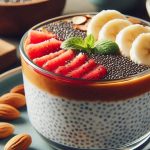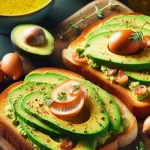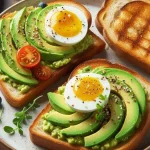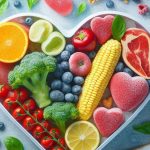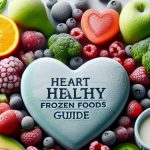When it comes to eating right, good fats for weight loss vegetarian options are a game-changer. These nutrient-packed fats not only fuel your body but also help curb cravings and maintain energy levels. Incorporating the right plant-based fats into your diet can make weight loss feel less like a chore and more like a flavorful journey.
Avocados are a top pick. Rich in monounsaturated fats, they keep you full and satisfied, making them an ideal addition to salads, sandwiches, or smoothies. Nuts like almonds, walnuts, and cashews are portable snacks packed with healthy fats, fiber, and protein. They provide sustained energy while supporting your weight loss goals.
Seeds, including chia and flaxseeds, are small but mighty. They’re high in omega-3 fatty acids, promoting heart health and helping you feel full. Cooking with olive oil or drizzling it over roasted vegetables adds a rich flavor while delivering essential fats that are great for your body.
Coconut oil, in moderation, can also be a versatile addition to vegetarian meals. Its medium-chain triglycerides are known to support metabolism. By embracing these good fats for weight loss vegetarian foods, you can enjoy delicious meals while staying on track toward a healthier you.
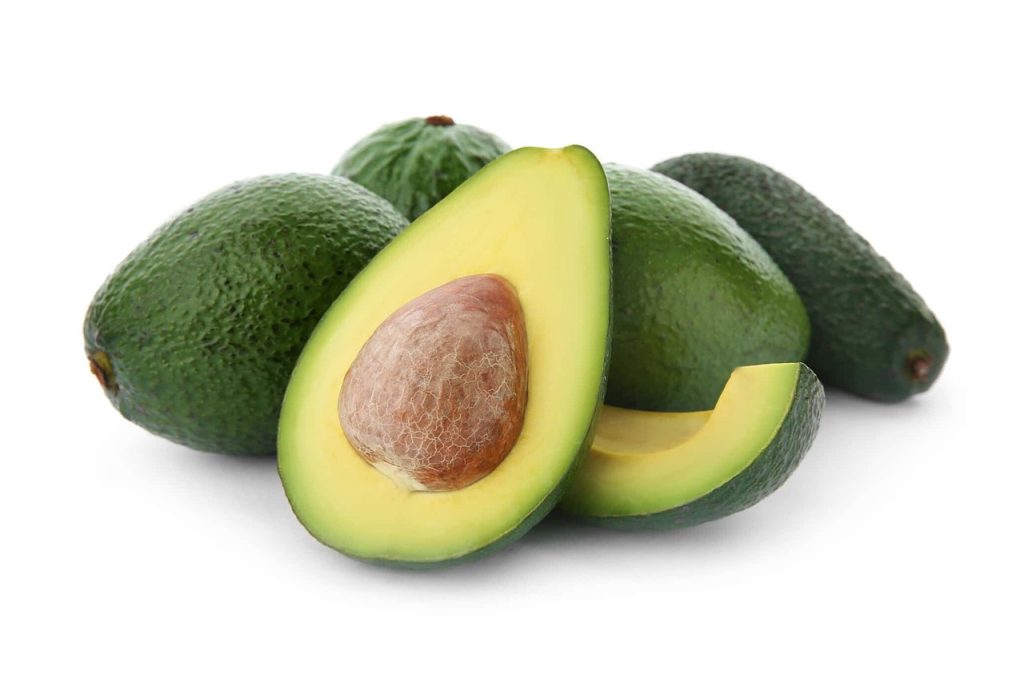
Unlock the Benefits of Healthy Fats for Weight Loss
Whole grains and heart health tips that work
What is a vegetarian diet?
Vegetarian Diets: A Guide
Vegetarian diets, which exclude meat, fish, and poultry, are becoming increasingly popular for various reasons. Some people adopt this lifestyle due to religious or ethical beliefs, while others are drawn to its potential health benefits.
Types of Vegetarian Diets
There are several types of vegetarian diets:
- Lacto-ovo-vegetarian: Includes eggs and dairy products.
- Lacto-vegetarian: Includes dairy products but excludes eggs.
- Ovo-vegetarian: Includes eggs but excludes dairy products.
- Vegan: Excludes all animal products, including honey.
Other plant-based eating patterns include:
- Flexitarian: Primarily plant-based but occasionally includes meat or fish.
- Pescatarian: Includes fish but excludes other meat.
The Health Benefits of Vegetarian Diets
Plant-based diets, rich in fruits, vegetables, whole grains, legumes, nuts, and seeds, are linked to numerous health benefits:
- Reduced Risk of Chronic Diseases: Vegetarian diets are associated with a lower risk of heart disease, certain types of cancer, diabetes, and high blood pressure.
- Weight Management: Studies show that vegetarian diets can be effective for weight loss.
- Improved Nutrient Intake: Plant-based foods are packed with fiber, vitamins, minerals, and antioxidants.
Key Considerations for a Healthy Vegetarian Diet
While vegetarian diets offer many advantages, it’s essential to ensure a balanced intake of nutrients. To maximize the benefits, consider the following:
- Prioritize Whole Foods: Opt for whole, unprocessed plant-based foods like fruits, vegetables, whole grains, legumes, nuts, and seeds.
- Plan Your Meals: Ensure a variety of foods to meet your nutritional needs.
- Consider Supplements: Some vegetarians may benefit from supplements like vitamin B12, iron, and calcium.
- Consult a Healthcare Professional: A healthcare provider can help you create a personalized dietary plan.
Barriers to losing weight on a vegetarian diet
While vegetarianism can promote weight loss due to its potential for lower calorie intake and increased fiber, several factors, such as poor dietary choices or overeating, can prevent weight loss goals from being achieved.
Eating large portions and not enough protein
Vegetarian Diet and Weight Gain: A Balancing Act
A common misconception is that a vegetarian diet automatically leads to weight loss. While it’s true that a plant-based diet can be a healthy choice, it’s essential to manage portion sizes and ensure adequate protein intake to avoid unintended weight gain.
The Role of Protein
Protein plays a crucial role in weight management. It helps you feel fuller for longer by reducing the production of ghrelin, a hunger hormone. This can lead to lower overall calorie intake and potential weight loss.
While it’s entirely possible to meet your protein needs on a vegetarian diet, transitioning to a meat-free lifestyle might initially pose challenges.
Tips for Maintaining a Healthy Vegetarian Diet:
- Mindful Eating:
- Pay attention to portion sizes.
- Eat slowly and savor each bite.
- Listen to your body’s hunger and fullness cues.
- Prioritize Protein:
- Incorporate a variety of protein-rich plant-based foods like legumes, tofu, tempeh, nuts, and seeds.
- Consider plant-based protein supplements if needed.
- Balance Your Plate:
- Fill your plate with a colorful array of fruits, vegetables, whole grains, and lean protein sources.
Eating too many refined carbs
Refined Carbs: A Vegetarian’s Hidden Weight Gain Culprit
Vegetarian diets, while often associated with health benefits, can still contribute to weight gain if not carefully planned. One common pitfall for vegetarians is overconsumption of refined carbohydrates.
Why Refined Carbs Can Be Problematic:
- Low in Fiber, High in Calories: Refined carbs, like white bread, pasta, and pizza, are often low in fiber and high in calories. This can lead to overeating as they don’t satisfy hunger as effectively as whole grains.
- Insulin Spikes: Refined carbs can trigger rapid spikes in blood sugar, leading to increased insulin production. Over time, this can disrupt hormonal balance and contribute to weight gain.
The Connection Between Refined Carbs and Weight Gain:
Research suggests a strong link between consuming refined carbs and weight gain. Studies have shown that individuals with higher insulin levels after carbohydrate consumption tend to have a higher BMI.
Tips for Vegetarian Weight Management:
To avoid the pitfalls of refined carbs and maintain a healthy vegetarian diet, consider these tips:
- Prioritize Whole Grains: Opt for whole-grain bread, brown rice, quinoa, and whole-wheat pasta. These foods are rich in fiber, which can help you feel fuller for longer.
- Choose Lean Protein Sources: Incorporate plenty of plant-based protein sources like legumes, tofu, tempeh, and lentils. Protein can help stabilize blood sugar levels and reduce cravings.
- Load Up on Vegetables: Fill your plate with a variety of colorful vegetables. They’re low in calories, high in fiber, and packed with essential nutrients.
- Be Mindful of Portion Sizes: Even healthy foods can contribute to weight gain if consumed in excess. Pay attention to portion sizes and listen to your body’s hunger 1 cues. 1. naomedical.com naomedical.com
- Limit Processed Foods: Reduce your intake of processed vegetarian foods, as they often contain added sugars, unhealthy fats, and excessive sodium.
Overdoing calorie-rich foods
The Hidden Calories in Plant-Based Diets
Transitioning to a vegetarian diet can be a fantastic choice for health and the environment. However, it’s important to be mindful of a potential pitfall: an increased intake of high-fat plant-based foods.
While plant-based foods like nuts, seeds, nut butters, avocados, and coconut are incredibly nutritious and satisfying, they’re also calorie-dense. Unlike protein and carbohydrates, which provide 4 calories per gram, fats pack a punch at 9 calories per gram.
For instance, a mere 2 tablespoons (32 grams) of peanut butter contains a substantial 191 calories, with a whopping 148 calories coming from fat.
To ensure a balanced and healthy vegetarian diet, it’s crucial to be aware of portion sizes and choose a variety of foods, including plenty of fruits, vegetables, and whole grains.
Focusing on highly processed vegetarian foods
Vegetarian and Vegan Diets: Navigating the Processed Food Trap
While vegetarian and vegan diets are often associated with health benefits, it’s important to be mindful of the types of foods you choose. Relying heavily on processed vegetarian and vegan products can hinder weight loss efforts and potentially contribute to health issues.
Many processed vegetarian and vegan foods, such as veggie burgers, meat substitutes, frozen meals, baked goods, packaged desserts, and vegan cheese, are laden with unhealthy additives. These include:
- Sodium: Excessive sodium intake can lead to high blood pressure.
- Processed compounds: These can be difficult for the body to digest and may contribute to inflammation.
- Chemical preservatives and coloring agents: These can have long-term health implications.
- Calories and added sugars: Consuming too many calories, particularly from added sugars, can lead to weight gain.
The Connection Between Processed Foods and Weight Gain
Research has shown a strong link between the consumption of ultra-processed foods and obesity, high LDL cholesterol, and elevated blood pressure. To maximize the health benefits of a vegetarian or vegan diet, it’s crucial to prioritize whole, unprocessed foods.
Tips for a Healthier Vegetarian or Vegan Diet
- Prioritize Whole Foods: Focus on fruits, vegetables, whole grains, legumes, and nuts.
- Cook More Often: Prepare meals at home to have better control over ingredients.
- Read Food Labels Carefully: Look for products with minimal processing and added sugars.
- Limit Processed Foods: Reduce your intake of packaged and processed vegetarian and vegan products.
- Consult a Registered Dietitian: A professional can provide personalized advice and help you create a balanced diet.
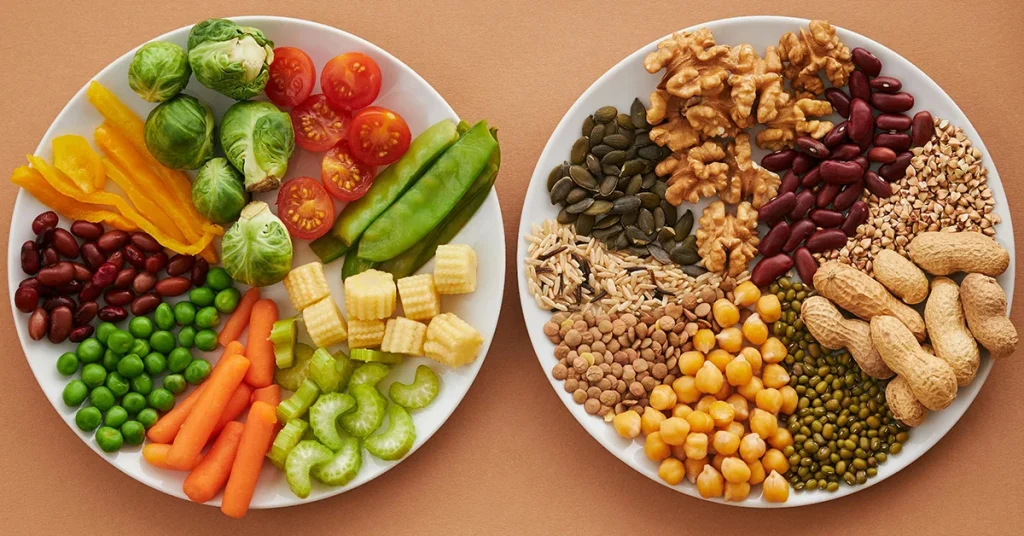
Tips to lose weight on a vegetarian diet
Fuel Your Weight Loss Journey with a Vegetarian Diet
A well-planned vegetarian diet can be a powerful tool for weight loss. Here are some strategies to help you achieve your goals:
Prioritize Plant-Based Powerhouses
- Veggie-Packed Plates: Fill half your plate with non-starchy vegetables like broccoli, cauliflower, zucchini, leafy greens, and mushrooms. These fiber-rich foods keep you satisfied and help control calorie intake.
- Protein-Packed Picks: Incorporate protein at every meal and snack. Vegetarian protein sources include beans, nuts, seeds, lentils, eggs, dairy products, and soy-based foods like tempeh, tofu, and edamame.
- Complex Carbs for Lasting Energy: Opt for complex carbohydrates, which provide sustained energy and keep you feeling full. Whole grains, starchy vegetables, fruits, and legumes are excellent choices.
Mindful Eating for Optimal Results
- Portion Control: Be mindful of portion sizes, especially when consuming high-calorie foods like nuts and seeds. Pair them with lower-calorie foods to avoid overeating.
- Whole Foods, Whole Health: Prioritize whole, unprocessed foods like fruits and vegetables. These nutrient-dense foods are free from unnecessary additives and promote overall well-being.
- Limit Processed Foods: Reduce your intake of highly processed foods, including meat alternatives, frozen meals, and ultra-processed snacks. These often contain unhealthy additives, excess salt, and added sugars.
Beyond the Plate: Essential Factors for Weight Loss
Remember, a balanced vegetarian diet is just one piece of the puzzle. To optimize your weight loss journey, consider these additional factors:
- Quality Sleep: Aim for 7-9 hours of quality sleep each night.
- Hydration: Stay hydrated by drinking plenty of water throughout the day.
- Regular Exercise: Incorporate regular physical activity into your routine.
Vegetarian foods that aid weight loss
Fuel Your Weight Loss Journey with a Plant-Powered Diet
Ready to embark on a weight loss journey? A vegetarian diet, rich in whole, minimally processed plant foods, can be a powerful tool to help you reach your goals.
Core Vegetarian Foods for Weight Loss:
- Non-Starchy Veggies: These low-calorie, high-fiber foods fill you up and keep you satisfied. Think broccoli, bell peppers, cauliflower, zucchini, mushrooms, tomatoes, eggplant, carrots, celery, and cucumber.
- Starchy Veggies: While these provide more carbohydrates, they’re still a healthier option than refined grains. Consider peas, potatoes, corn, and winter squash.
- Fruits: Packed with vitamins, minerals, and fiber, fruits like berries, oranges, apples, bananas, grapes, citrus, kiwi, and mango can be a delicious and nutritious part of your diet.
- Whole Grains: Choose whole grains over refined grains for sustained energy and better digestion. Opt for quinoa, brown rice, farro, millet, barley, and bulgur wheat.
- Beans and Legumes: These protein powerhouses are also high in fiber, making them a great choice for weight loss. Try lentils, black beans, pinto beans, and kidney beans.
- Nuts and Seeds: A handful of nuts or seeds can be a satisfying and healthy snack. Almonds, walnuts, pistachios, cashews, sunflower seeds, chia seeds, and nut butters are all excellent choices.
- Lean Proteins: While a vegetarian diet is primarily plant-based, you can incorporate lean protein sources like beans, legumes, nuts, seeds, nut butters, eggs, Greek yogurt, milk, and soy products (tofu, tempeh, edamame).
- Healthy Fats: Essential for overall health, healthy fats can be found in avocados, olive oil, coconut, nuts, seeds, nut butters, and cheese.
- Hydrating Beverages: Water is crucial for weight loss and overall health. You can also enjoy naturally flavored seltzer, fruit-infused water, and plain coffee or tea.
Foods to avoid on a vegetarian diet for weight loss
Vegetarian Diet for Weight Loss: Focus on Whole Foods
A well-planned vegetarian diet can be an effective tool for weight loss. However, it’s important to prioritize whole, unprocessed foods to maximize your health benefits.
Foods to Limit or Avoid:
- Highly Processed Vegetarian Foods: Many vegetarian processed foods, like veggie burgers, meat replacements, and imitation dairy products, can be high in unhealthy fats, sodium, and additives.
- Refined Carbs: Refined grains, such as white bread, pasta, and bagels, are quickly digested, leading to blood sugar spikes and cravings. Opt for whole-grain alternatives instead.
- Sugary Foods and Beverages: Sugary drinks and desserts can contribute to weight gain and other health problems. Limit your intake of sugary foods and beverages.
Tips for a Successful Vegetarian Diet:
- Prioritize Whole Foods: Focus on plant-based whole foods, such as fruits, vegetables, whole grains, legumes, and nuts.
- Portion Control: Be mindful of portion sizes, even for healthy foods.
- Read Food Labels: Check labels for hidden sugars, unhealthy fats, and excessive sodium.
- Stay Hydrated: Drink plenty of water throughout the day.
- Consult a Healthcare Professional: If you’re considering a vegetarian diet for weight loss, consult with a healthcare professional or registered dietitian to create a personalized plan.
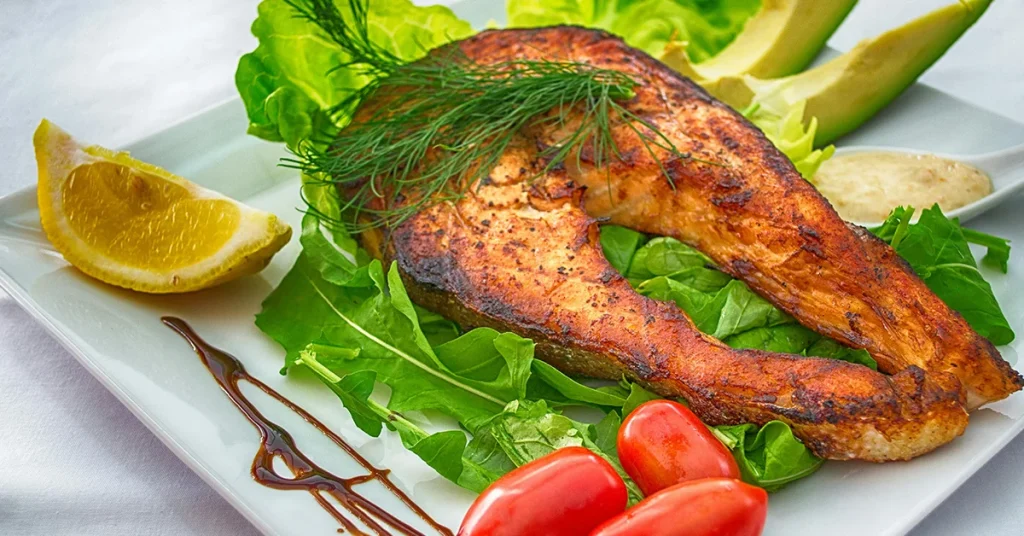
Sample vegetarian meal plan for weight loss
A 5-Day Vegetarian Meal Plan for Weight Loss
Looking to shed some pounds while enjoying a delicious, plant-based diet? This 5-day meal plan offers a variety of vegetarian meals that are both nutritious and satisfying.
Day 1:
- Breakfast: Start your day with a hearty bowl of steel-cut oats topped with sweet apples, creamy peanut butter, and warm cinnamon.
- Lunch: A refreshing salad of crisp greens, protein-packed hard-boiled eggs, creamy avocado, juicy tomatoes, and a tangy balsamic vinaigrette.
- Dinner: Warm up with a comforting bowl of black bean soup, garnished with a dollop of creamy Greek yogurt. Serve with a side of whole-grain bread and a fresh salad.
- Snack: A handful of almonds and a square of rich, dark chocolate.
Day 2:
- Breakfast: A classic breakfast of scrambled eggs with vibrant broccoli and sharp cheddar cheese, paired with a side of sweet berries.
- Lunch: A customizable burrito bowl filled with wholesome brown rice, hearty pinto beans, fresh tomato, onion, and creamy avocado.
- Dinner: A light and healthy dinner of zucchini noodles tossed in a rich marinara sauce, topped with crunchy sunflower seeds and creamy white beans.
- Snack: A stick of string cheese or a juicy orange.
Day 3:
- Breakfast: A creamy and refreshing breakfast of plain Greek yogurt topped with sweet pineapple, shredded coconut, and crunchy walnuts.
- Lunch: A hearty bowl of lentil soup, paired with colorful bell peppers and a dollop of creamy guacamole.
- Dinner: A classic Italian dish of eggplant Parmesan, served over a bed of whole-grain pasta and alongside a side of green beans.
- Snack: A wholesome whole-grain granola bar or a handful of fresh berries.
Day 4:
- Breakfast: A refreshing smoothie bowl made with unsweetened almond milk, nutrient-packed spinach, protein-rich hemp seeds, sweet frozen berries, and a ripe banana.
- Lunch: A classic egg salad sandwich on whole-grain bread, paired with a side of sweet strawberries, crunchy carrots, and a dollop of creamy hummus.
- Dinner: A flavorful stir-fry of tofu, colorful carrots, and crisp broccoli, served over a bed of brown rice and seasoned with soy sauce and honey.
- Snack: A piece of dried mango and a handful of crunchy pistachios.
Day 5:
- Breakfast: A simple and satisfying breakfast of two eggs and a slice of whole-grain toast topped with creamy avocado, paired with a side of sweet grapes.
- Lunch: A hearty salad of leafy kale, crunchy pecans, sweet dried cranberries, creamy goat cheese, and protein-packed edamame.
- Dinner: A satisfying dinner of homemade chickpea patties, served alongside sautéed mushrooms and a baked sweet potato.
- Snack: A creamy and refreshing snack of plain Greek yogurt topped with sweet cherries.
FAQs good fats for weight loss vegetarian
How to Lose 10kg in 2 Weeks Vegetarian
Losing 10kg in 2 weeks is an extreme goal and not typically recommended for sustainable health. However, if you’re focused on quick vegetarian weight loss, prioritize a calorie deficit through nutrient-dense foods. Eat plenty of vegetables, protein-rich options like lentils, tofu, and chickpeas, and incorporate good fats for weight loss vegetarian options such as avocado and nuts in moderation. Hydration and consistent exercise also play a key role.
What Are the Healthiest Fats for Weight Loss?
The healthiest fats for weight loss include monounsaturated fats and omega-3 fatty acids. Sources like olive oil, avocados, nuts, seeds, and fatty fish (for non-vegetarians) are excellent. These fats enhance metabolism, keep you full, and support overall health.
What Are Vegetarian Healthy Fats?
Vegetarian healthy fats include avocados, nuts (almonds, walnuts), seeds (chia, flax), and plant-based oils like olive and coconut oil. These fats are ideal for weight loss and nutrient absorption.
What Are 5 Healthy Food Vegetarian?
- Lentils – Packed with protein and fiber.
- Spinach – Loaded with iron and vitamins.
- Almonds – Healthy fats and energy-boosting.
- Avocado – Rich in monounsaturated fats.
- Sweet Potatoes – High in complex carbs and fiber.
How to Gain 10kg Weight in 1 Month for Vegetarians
To gain weight, focus on calorie-dense vegetarian foods like nuts, seeds, avocados, whole grains, and legumes. Eat frequent, balanced meals and add healthy snacks like nut butters or smoothies with almond milk and bananas. Incorporate strength training to ensure the weight gained is muscle.



